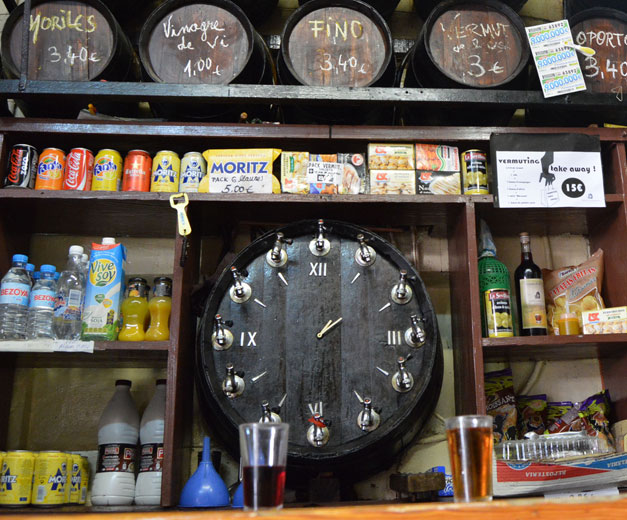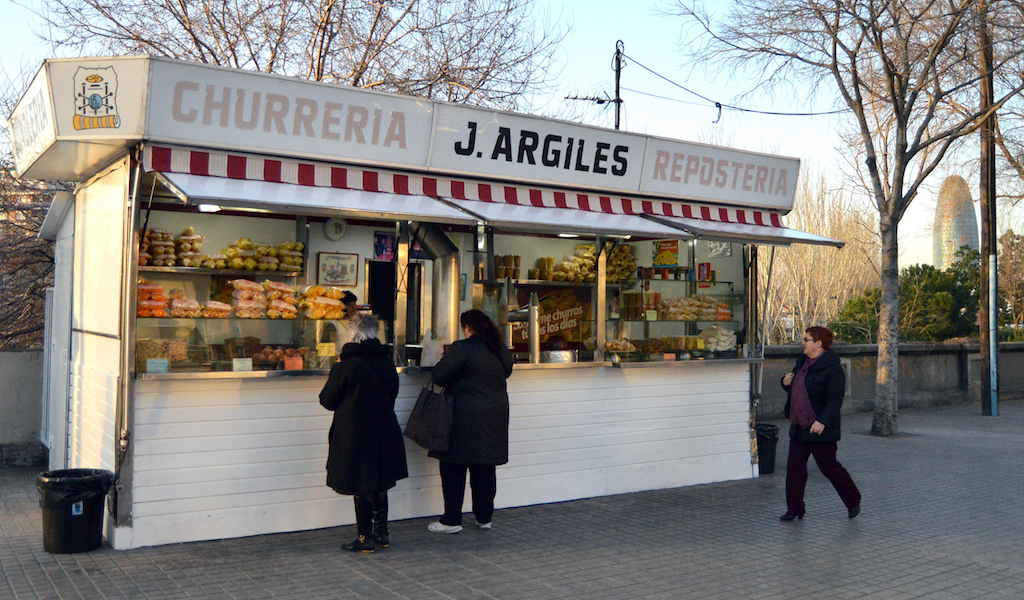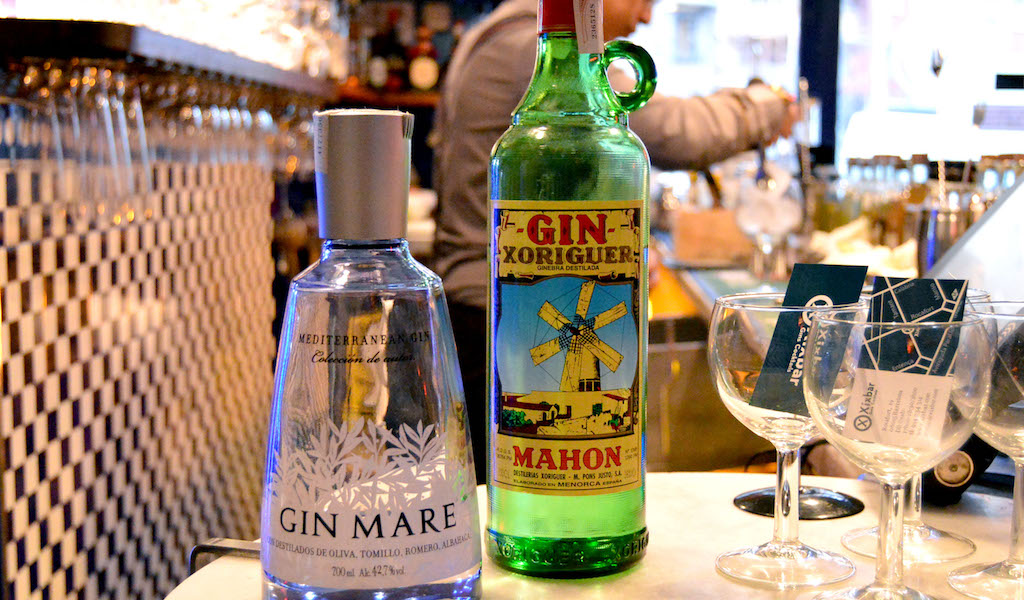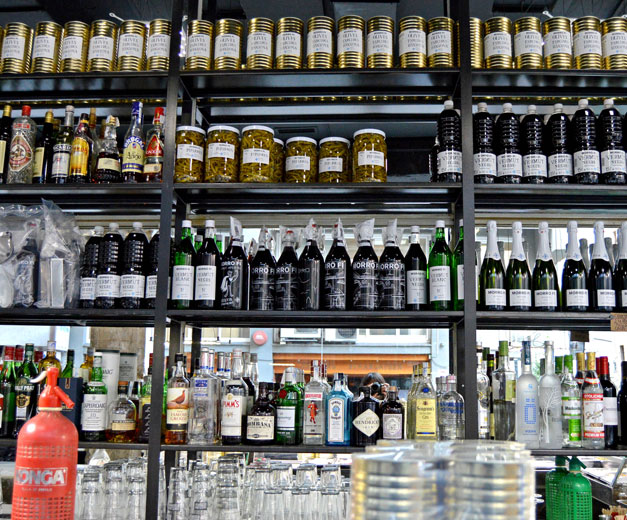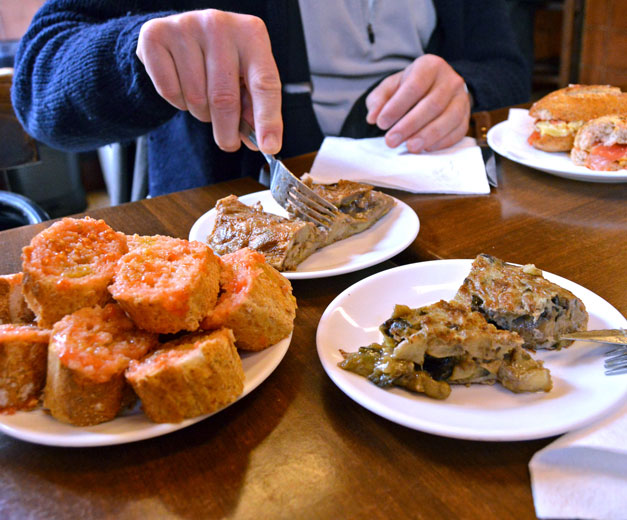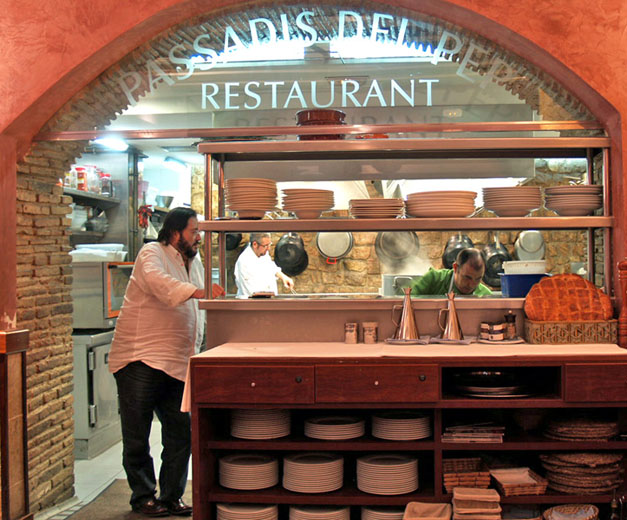We can't find the internet
Attempting to reconnect
Something went wrong!
Hang in there while we get back on track
Search results for "Paula Mourenza"
Barcelona
Bulk Wine: The Good Stuff, on Tap
For so long, bulk wine has been synonymous with plonk – even in a country like Spain, where buying wine straight from the barrel was standard practice up until the 1980s, when it was largely replaced by bottles with certified designations of origin. We are well acquainted with the bad stuff, which we call vino peleón, literally “scrappy” wine, but thankfully, the era of its ubiquity is mostly over and done with. It’s much easier these days to find good wine at low prices (€1 to €5 per liter) that’s suitable for everyday drinking. And another upside to this practice is the environmentally friendly packaging: your own jug.
Read moreBarcelona
Everyday is Fry-Day: Where We Go For the Best Churros in Barcelona
Churros, the long, skinny, crenellated, sweet fried crullers made from just flour, water and salt, have been enjoyed for centuries in Spain, with hot chocolate and without. However, in Barcelona, xurros, as they are called in Catalan, are becoming an endangered species. In recent years, more than half of the xurrerias in the city have disappeared. Many of the old-timer xurreros who still survive have the odds stacked against them: permit renewal for a street stall is near impossible; rent has become prohibitively expensive and continues to increase; or required updates to old infrastructure might prove extremely costly. However, we know of one young newcomer who has emerged with fresh energy and inspiration, incorporating lessons from the masters in his creative take on xurros. The best way to save this endangered species is to eat it, so here are our five favorite xurrerias, which make these star-shaped doughnuts with great care – and with delicious results that are worth seeking out.
Read moreBarcelona
Barcelona's Gintonics: Good to the Last Drop
Editor's note: Our third installment in the Global Bar Crawl takes us to Barcelona, where gin continues to be the drink of choice among locals. Tomorrow we head to a spot in Istanbul where you can spend an evening visiting a number of bars, all without leaving the building. Spain is a country that loves a long-drink – alcohol in combination with a soft drink, refreshing and open to invention and reinvention. On the heels of creative gastronomy’s efflorescence in recent years, many old drinks, cuisines and forgotten ingredients have returned, revived through new and more sophisticated techniques and interpretations. The gin and tonic, called gintonic here, is one such Spanish obsession, and all that ingenuity and focus have gone into taking this highball to the next level.
Read moreBarcelona
Morro Fi and Mitja Vida: The Whole Vermouth & Nothing but Vermouth
Morro Fi and Mitja Vida are two relatively new entrants to Barcelona’s vermuteo (“vermouthing”) culture, whose history stretches back to the turn of the last century. These two bars are the product of nostalgia for a bygone era fused with the social network- and urban design-driven present. The vermouth tradition in Barcelona was started in the early 20th century by Flaminio Mezzalama, who represented the Italian company Martini & Rossi in Spain, at his fabulous modernist Bar Torino. Vermut began to be produced in Catalonia, and in the following decades, the province developed its own style of the aromatic fortified drink. At the same time, the custom arose of having vermut before lunch with some pickles to whet one’s appetite. That tradition faded over time but has emerged in recent years as a kind of retro, hipster-approved pastime.
Read moreBarcelona
Can Ros: Put a Fork in It
Fried pig’s ears fortified with garlic and parsley, veal cheek and tongue laced with vinaigrette, hefty veal and pork meatballs, creamy artichoke or eggplant omelets or a hearty bocadillo of marinated tuna, red pepper, anchovies and olives: these esmorzars de forquilla, or “fork breakfasts,” are how a Catalonian might start his day – especially at Can Ros, a tapas-and-bocadillos joint that’s open every day from 7 a.m. until midnight. Office workers might drop by for a coffee at mid-morning, followed by the lunch crowd, which takes over from 2 p.m. to 4 p.m. Dinner, of course, lasts well into the night. It’s breakfast, however, that has made Can Ros most popular among locals.
Read moreBarcelona
Cava: A Toast to Spain's All-Day Sparkler
An indispensable part of celebrations, cava, the Spanish sparkling wine, is just the drink for ringing in the New Year – though we’re happy to find other reasons to raise a glass of the stuff any day of the week. Cava is produced using the same méthode traditionnelle that is used for French champagne: after the base wine is fermented from the pressing, it’s bottled, usually with a mixture of sugar and yeast, to undergo a second fermentation to produce that festive fizz.
Read moreBarcelona
El Passadís del Pep: Simple Pleasures
A hidden culinary sanctuary, El Passadís del Pep may be located in one of the most visited quarters of Barcelona, but it’s out of sight of anyone who isn’t looking for it. Once you go down the long corridor that leads to the restaurant, you don’t need to do anything, and that includes choosing what to eat. From the moment you sit down, the “house” offers you your first bottle of cava, and the celebration of food and life begins. There is no menu and there are no “daily specials,” just whatever Joan Manubens and his team decide to cook that day.
Read more